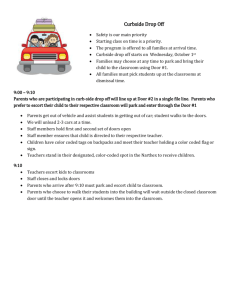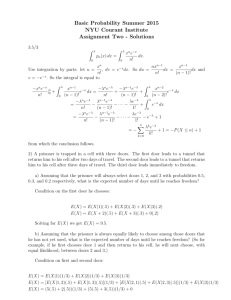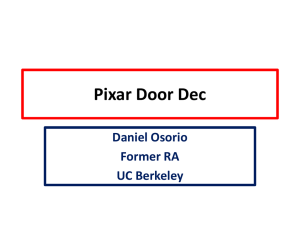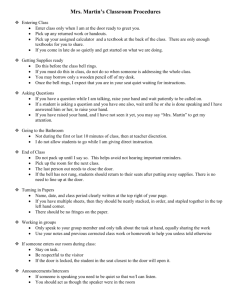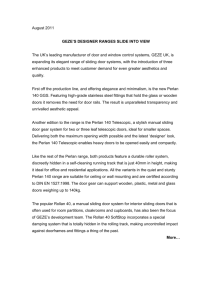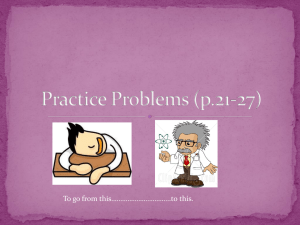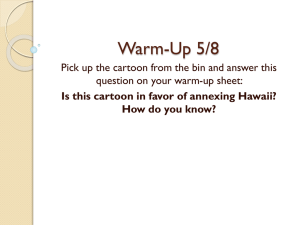Math 492ProblemSet1
advertisement
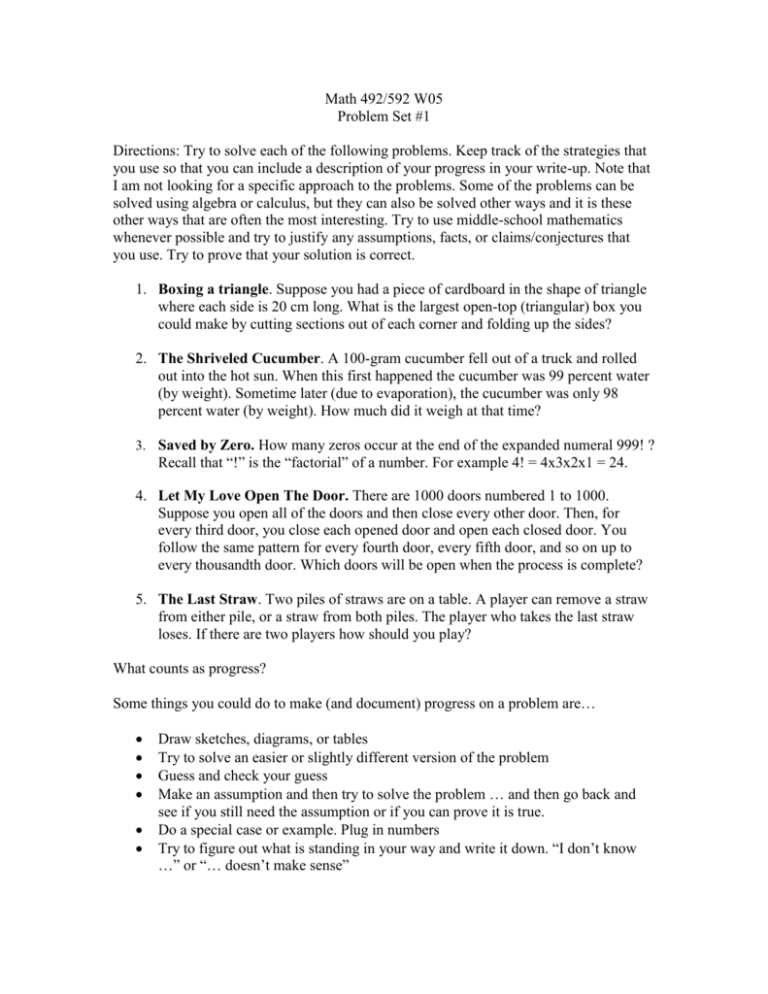
Math 492/592 W05 Problem Set #1 Directions: Try to solve each of the following problems. Keep track of the strategies that you use so that you can include a description of your progress in your write-up. Note that I am not looking for a specific approach to the problems. Some of the problems can be solved using algebra or calculus, but they can also be solved other ways and it is these other ways that are often the most interesting. Try to use middle-school mathematics whenever possible and try to justify any assumptions, facts, or claims/conjectures that you use. Try to prove that your solution is correct. 1. Boxing a triangle. Suppose you had a piece of cardboard in the shape of triangle where each side is 20 cm long. What is the largest open-top (triangular) box you could make by cutting sections out of each corner and folding up the sides? 2. The Shriveled Cucumber. A 100-gram cucumber fell out of a truck and rolled out into the hot sun. When this first happened the cucumber was 99 percent water (by weight). Sometime later (due to evaporation), the cucumber was only 98 percent water (by weight). How much did it weigh at that time? 3. Saved by Zero. How many zeros occur at the end of the expanded numeral 999! ? Recall that “!” is the “factorial” of a number. For example 4! = 4x3x2x1 = 24. 4. Let My Love Open The Door. There are 1000 doors numbered 1 to 1000. Suppose you open all of the doors and then close every other door. Then, for every third door, you close each opened door and open each closed door. You follow the same pattern for every fourth door, every fifth door, and so on up to every thousandth door. Which doors will be open when the process is complete? 5. The Last Straw. Two piles of straws are on a table. A player can remove a straw from either pile, or a straw from both piles. The player who takes the last straw loses. If there are two players how should you play? What counts as progress? Some things you could do to make (and document) progress on a problem are… Draw sketches, diagrams, or tables Try to solve an easier or slightly different version of the problem Guess and check your guess Make an assumption and then try to solve the problem … and then go back and see if you still need the assumption or if you can prove it is true. Do a special case or example. Plug in numbers Try to figure out what is standing in your way and write it down. “I don’t know …” or “… doesn’t make sense”


